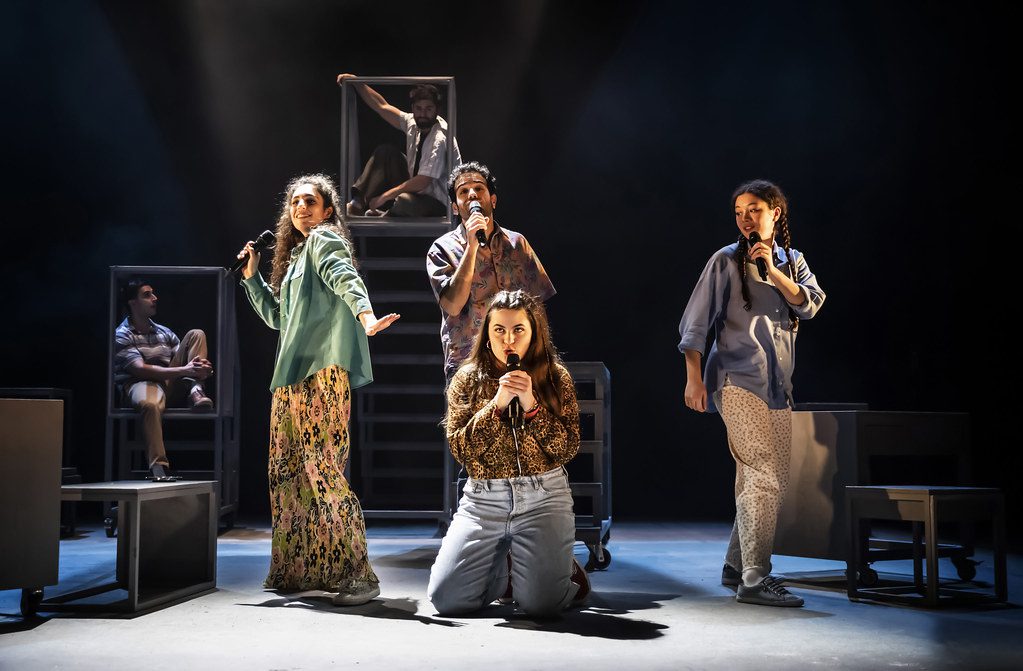As the news cycle churns on we forget the protests of yesteryear, the excitement of a time like the Arab Spring of 2011 when a new spirit of hope gripped the Middle East that young people could throw off the shackles of corrupt government and oppressive theology.
You Bury Me is set in 2015, when the danger and the thrilling sense of a new dawn of the Tahrir Square demonstrations are over and the state has reasserted itself. The title comes from the Arabic expression of love, meaning ‘I hope you bury me before I bury you because I don’t want to live without you.’ The writer, known as Ahlam, deservedly won the Women’s Prize for Playwriting for You Bury Me in 2020.
The cast are three young men and three young women with very different dilemmas but they are conscious of both the antiquity of Cairo and its modernity, a place of Mercedes and donkey carts. It is played in the round and directed seamlessly by Katie Posner to the accompaniment of Arabic techno music on a minimal stage where the sights, sounds and smells of the city are evoked with the writhing, gesturing dance of the explosively energetic cast.
Studious Lina played by Eleanor Nawal is the long-suffering companion to her rebellious friend Maya played by Yasemin Ozdemir who flirts with older men, though this is relative – ‘He’s twenty-three, that’s so old.’ She practises dance routines in her car in a Cairo traffic jam and has a sense of freedom explicitly focussed on women’s sexual licence, ‘I want it to be OK for women to be able to have sex whenever and wherever they want.’
The consequence of the failure of the lack of personal freedom is shown in the relationship of Alia played by Hanna Khogali and Tamar played by Moe Bar-El. She is a Muslim, he a Coptic Christian, the men in her family are all police with the power to make people ‘disappear.’ The path of love in a police state does not run smooth. Their sex is relegated to kisses and mutual masturbation including a grotesquely funny scene where Tamar accidentally ruptures Tamar’s hymen and an anguished discussion ensues on her future life now she is ‘not a virgin’. She thinks she is ‘ruined’ even though she has never had full sex.
There are strong, energetic performances from all the cast, Nezar Alderazi as Rafik acts as if he has an animal inside him, fighting to get out. He has been thrown out of his home by his father who caught him with a boy. He wants to live the bohemian life and eschews politics, resisting the seriousness of his best friend Osman (Tarrick Benham). All he wants is to go to Sinai and sell drugs to hippy Israelis or seduce a rich foreign woman. Osman, on the other hand, writes a blog about what is happening in Egypt, despite the increasing danger and the ‘disappearance’ of other political activists.
This play takes you right into the hearts of young Egyptians and the bleak choices they face after a failed revolution. This is an immediate, impressive and powerfully performed piece of theatre.

